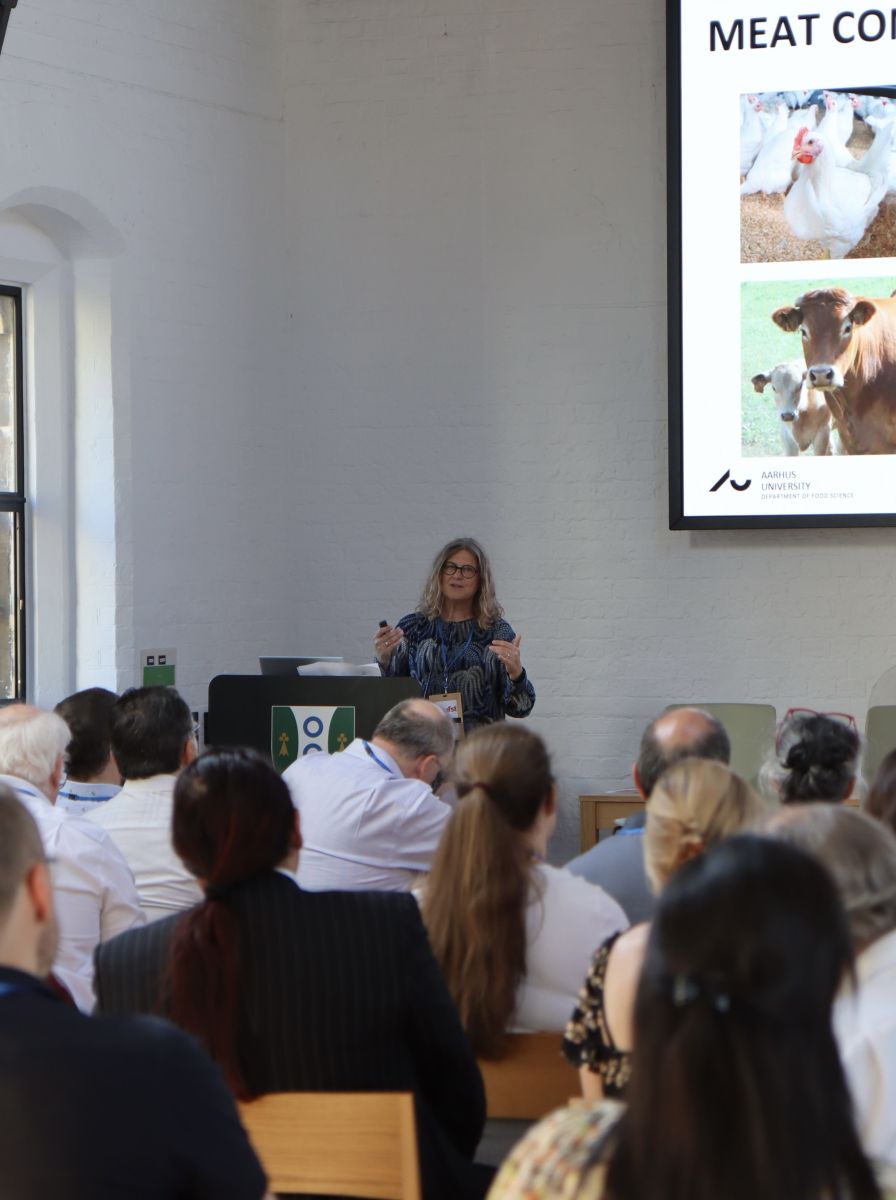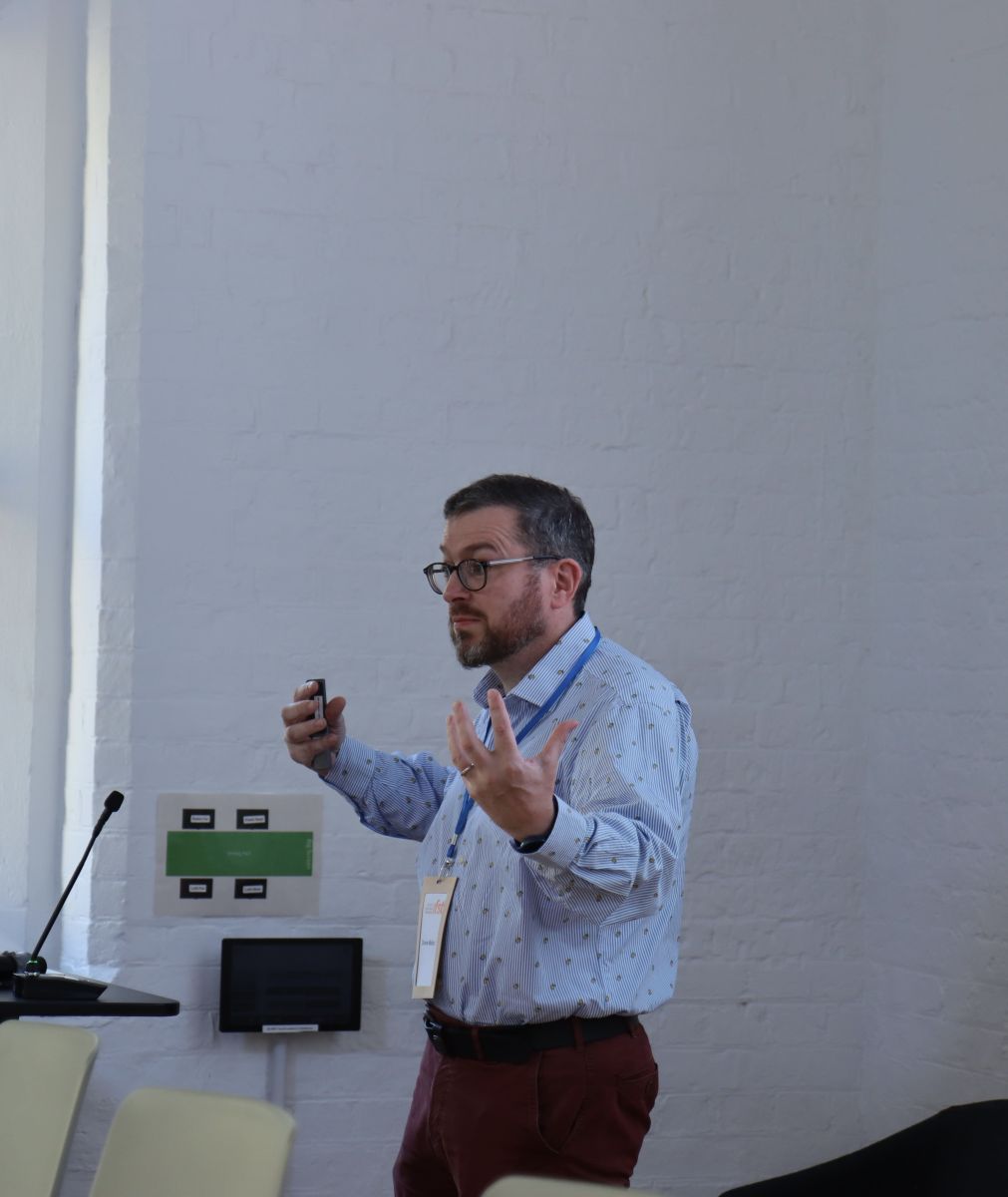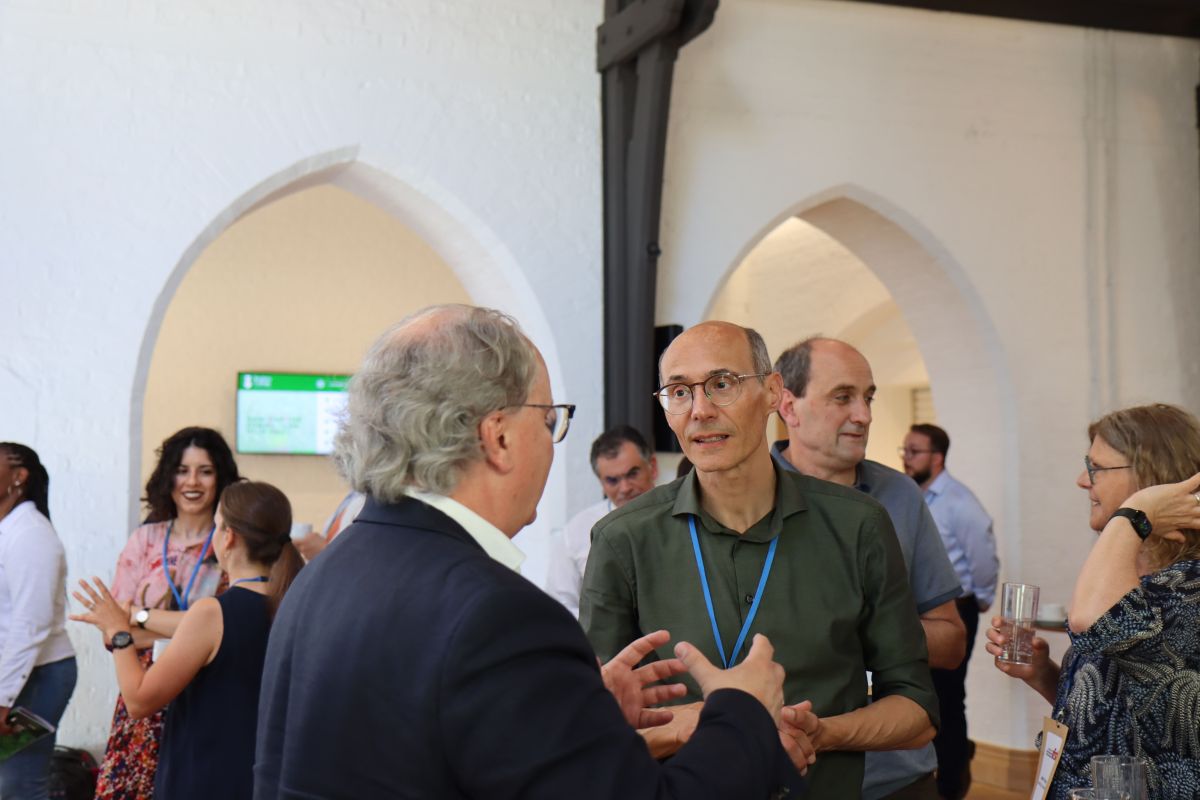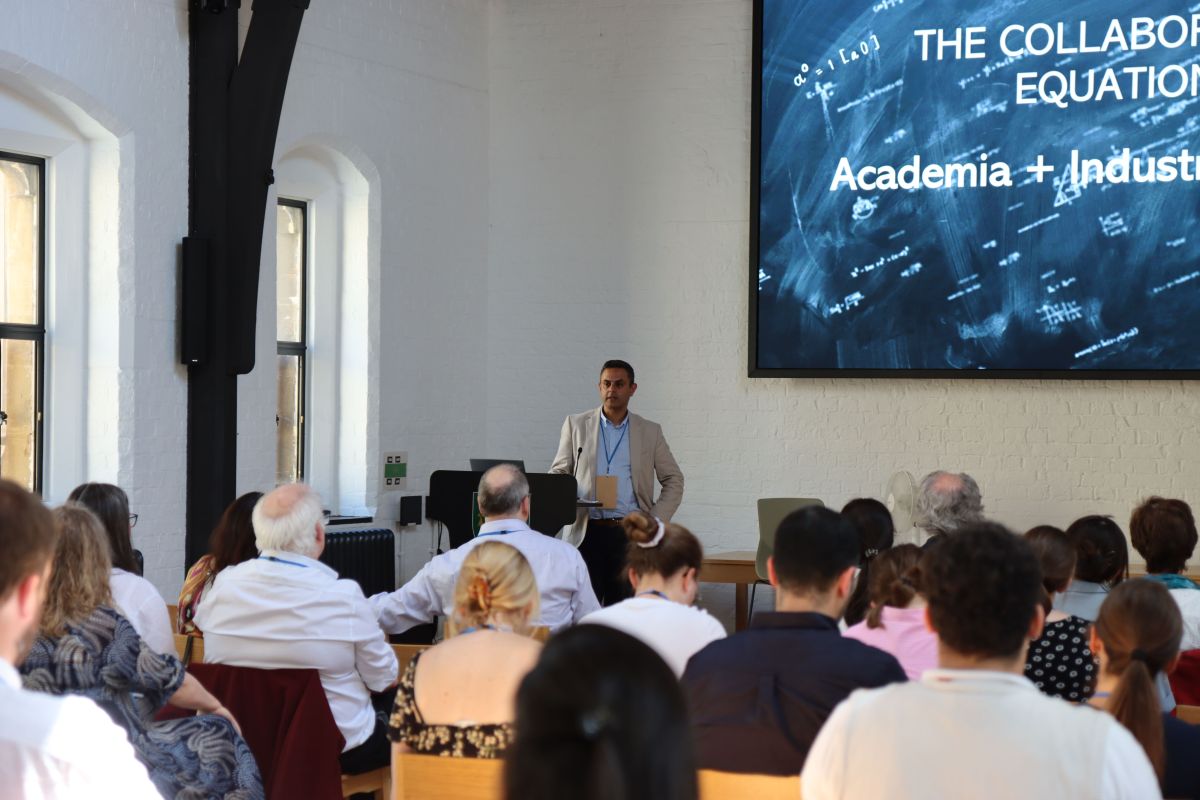
This event was organised by IFST, the Environmental Change Institute, University of Oxford and RMIT Melbourne
The inaugural IFST Oxford Food Summit, a collaborative event with the University of Oxford and RMIT Melbourne, was a landmark moment for the Institute. The summit brought together leading minds from science, policy, and industry to tackle a central question: how to design adaptive food systems for sustainable nutrition? The event, now available as a box set for IFST members, offers a comprehensive deep dive into the interconnected challenges and innovative solutions shaping the future of food.
The Big Picture: Navigating a Complex System1
The summit began with a powerful keynote from Dr. John Ingram of the University of Oxford. His presentation, "Transforming Food System Outcomes: Who has to adapt what”, framed food as a foundation for jobs, livelihoods, environmental health, and public wellbeing. Ingram emphasised a "systems approach" to food security, where the balance between environmental protection, fair livelihoods, and public health is paramount. He urged attendees to see themselves as "food system navigators," steering change through evidence and collaboration, a theme that resonated throughout the day.
Innovating Our Way to Sustainability
 The first session, "Adapting Foods for Sustainable Nutrition," explored how science can transform what we eat. Professor Jette Young of Aarhus University provided a nuanced look at cultivated meat, highlighting its potential to reduce environmental impact while acknowledging the energy-intensive production process. Her key message was one of integration, suggesting cultivated meat should complement, not replace, existing food systems.
The first session, "Adapting Foods for Sustainable Nutrition," explored how science can transform what we eat. Professor Jette Young of Aarhus University provided a nuanced look at cultivated meat, highlighting its potential to reduce environmental impact while acknowledging the energy-intensive production process. Her key message was one of integration, suggesting cultivated meat should complement, not replace, existing food systems.
This was followed by Dr. Duane Mellor, Senior Specialist Dietitian, who challenged the audience to reconsider the meaning of "processing." He argued that not all processing is bad, but that we must ask deeper questions about how modern techniques affect the nutritional structure of our food. Mellor's talk linked food innovation directly to consumer trust, a crucial element for new technologies to succeed.
Rounding out the session, Professor Charalampos Proestos of the University of Athens showcased the potential of circular bioeconomy, demonstrating how waste products like grape skins and olive mill residue can be transformed into functional compounds for food packaging and even medicine.
Consumer Behaviour and Collaboration
 The afternoon sessions shifted focus to the human element. Professor Wim Verbeke of Ghent University explored the "protein transition" from a consumer perspective. He showed that despite the rise of plant-based options, consumer adoption remains gradual, influenced by deeply rooted habits and social expectations. Verbeke's research highlighted that while the shift to sustainable diets is ongoing, significant barriers related to taste, cost, and neophobia remain.
The afternoon sessions shifted focus to the human element. Professor Wim Verbeke of Ghent University explored the "protein transition" from a consumer perspective. He showed that despite the rise of plant-based options, consumer adoption remains gradual, influenced by deeply rooted habits and social expectations. Verbeke's research highlighted that while the shift to sustainable diets is ongoing, significant barriers related to taste, cost, and neophobia remain.
Professor Charles Brennan from RMIT then took the audience on a journey through prebiotics, probiotics, and postbiotics, explaining how these plant-based ingredients support gut health. His talk emphasised the importance of translating complex science into accessible information for consumers.
The day also featured an insightful talk on "The Collaboration Equation" from Imran Afzal,  Chief Executive Officer of the National Alternative Protein Innovation Centre (NAPIC), who offered practical guidance on bridging the gap between academia and industry. He stressed that successful partnerships require trust, clear communication, and aligned objectives, showing how these collaborations can solve complex problems and accelerate sustainable innovation.
Chief Executive Officer of the National Alternative Protein Innovation Centre (NAPIC), who offered practical guidance on bridging the gap between academia and industry. He stressed that successful partnerships require trust, clear communication, and aligned objectives, showing how these collaborations can solve complex problems and accelerate sustainable innovation.
Dr Anne Mumbi, Senior Post Doctorate Research Assistant at Harper Adams University, then presented research from the Pasture to Plate project led by Harper Adams University and the University of Bath, which explores using grass as a sustainable protein source. Her research showed that a significant portion of consumers are willing to try grass-based ingredients, a finding that highlights the importance of integrating consumer insights with technological innovation when introducing novel foods.
Spotlight on Cutting-Edge Research
The summit's poster competition offered a glimpse into the future of food science, showcasing the next generation of innovators. Highlights included:
- Julia Andronache's work on using next-generation sequencing to detect mislabelled seafood, protecting consumers from allergens and fraud.
- Iberedem Robinson's research on using cassava and ginger to create healthier, antioxidant-rich bread.
- Alex Stratakos's study on a novel method to enhance meat safety using cold atmospheric plasma.
- Szymon Lara's project on reintroducing "forgotten crops" to increase food system biodiversity and resilience.
- Sairung Weerayuthkosol's innovative use of machine learning and near-infrared spectrometry to non-invasively assess chocolate quality.
These presentations underscore the breadth and impact of current work in food science and food technology, from supply chain transparency to sensory analysis.
The Road Ahead: A Call to Action
The IFST Oxford Food Summit 2025 box set is an essential resource for anyone in the food system. The sessions are interconnected, building a coherent narrative from high-level concepts to practical applications. It is a reminder that no single solution can fix our food system, and that progress requires thoughtful, multidisciplinary collaboration.
The content is both thought-provoking and practical, offering valuable insights for researchers, industry professionals, and policymakers alike. As IFST Chief Executive Craig Leadley emphasised in his closing remarks, our food system is highly interconnected, and solutions demand a multi-dimensional approach. We highly recommend that members watch the full recording to gain a deeper understanding of the research and discussions that will shape the future of food. Viewing of the recordings can be logged as CPD hours through the CPD section of your member area.
Browse our photo album showcasing key moments and connections from the summit below.

